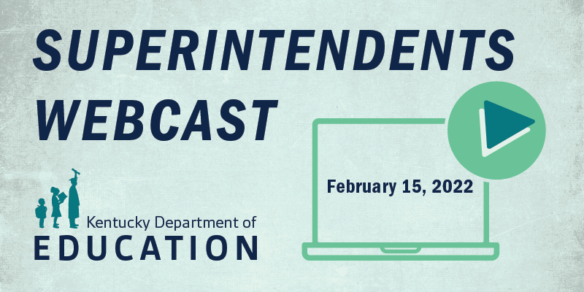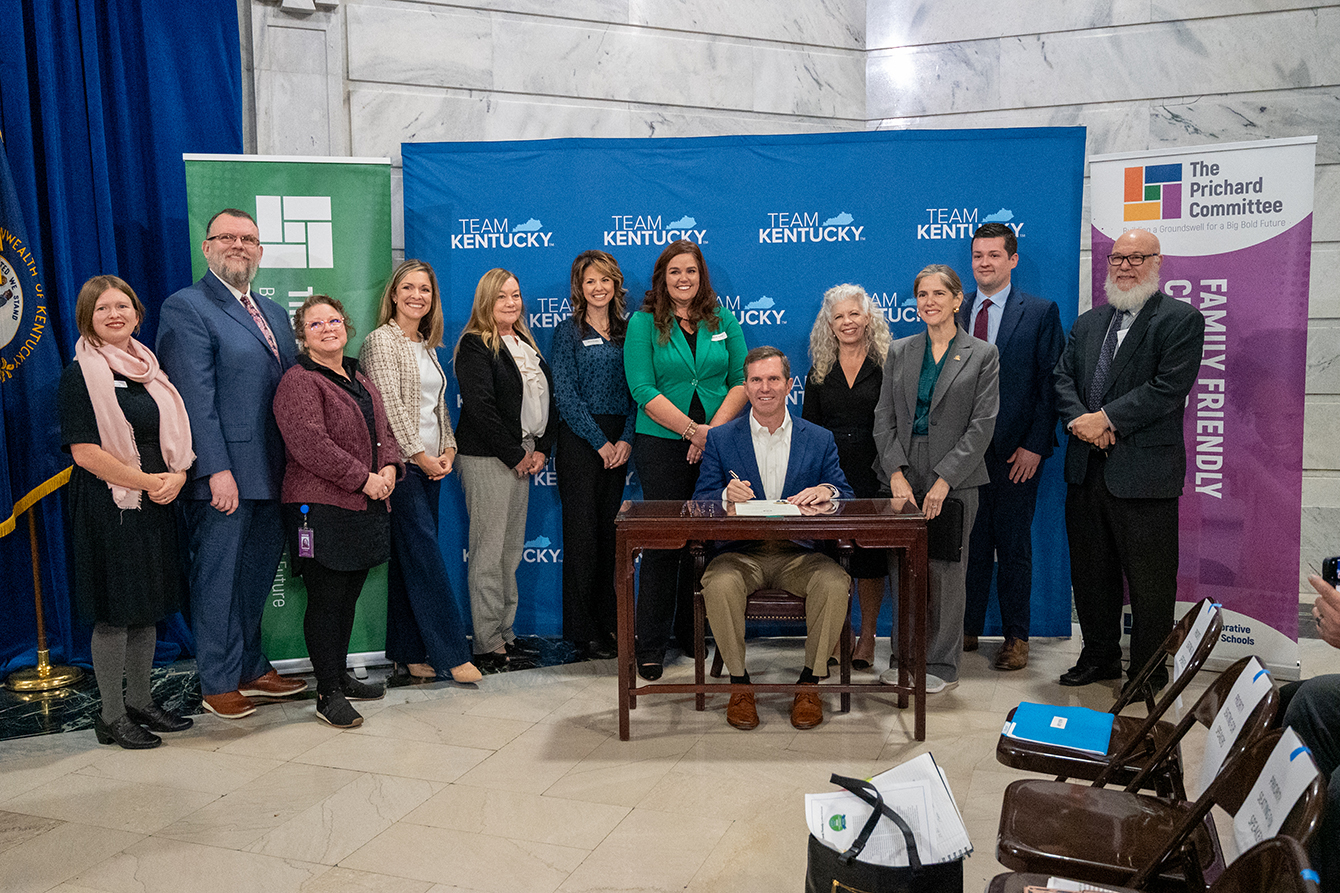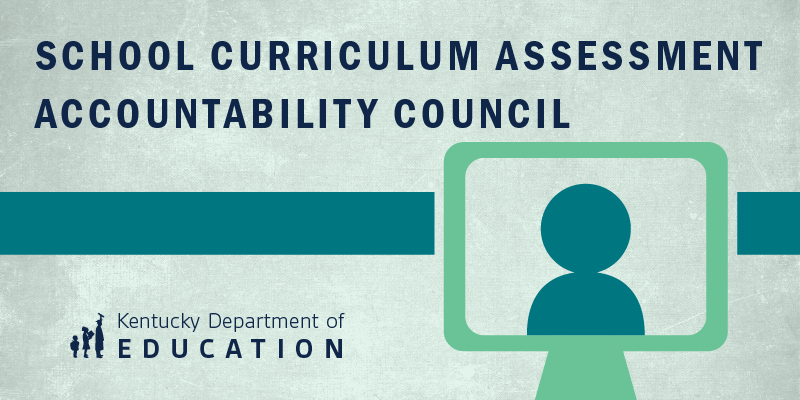 During the Feb. 15 Superintendents Webcast, and coming off the heels of last week’s release of the 2022 Impact Kentucky Working Conditions Survey results, staff from the Kentucky Department of Education (KDE) provided district leaders with context on how to examine the data to make informed decisions for their schools.
During the Feb. 15 Superintendents Webcast, and coming off the heels of last week’s release of the 2022 Impact Kentucky Working Conditions Survey results, staff from the Kentucky Department of Education (KDE) provided district leaders with context on how to examine the data to make informed decisions for their schools.
The Impact Kentucky Survey, formerly the TELL Kentucky survey, asks teachers about their working conditions and helps improve the environment for educators across the state. This year, KDE and Panorama received feedback from the Commissioner’s Teacher Advisory Council and Principal Advisory Council to help shape the survey format and content.
This is the first working conditions survey administered to employees since the COVID-19 pandemic began. More than 38,000 certified employees responded to the survey, and approximately 33,000 of those were teachers.
“Considering the environment that we’re in, I think the response rate is impressive,” said Byron Darnall, associate commissioner in the Office Educator Licensure and Effectiveness at KDE.
While educators reported most favorably on staff-leadership relationships at 76%, they reported least favorably on emotional well-being and belonging at 48%. A total of 75% of respondents said they were, to some degree, concerned with the emotional well-being of their colleagues as a result of their work, and 64% said they were concerned about their own emotional well-being.
“It is not surprising that educators have a high level of concern for their peers, which we know is predominant in our schools,” Darnall said. “But then also they have a high concern for themselves as well.”
On a bright note, however, 70% of the respondents across the state reported favorably for the sense of belonging at their current school, he added.
Darnall clarified this survey is a tool available to school-level personnel to make continuous improvements within their own schools and districts and should be viewed as a “snapshot in time.”
“We have to be supportive of one another,” he said. “We have to do our best to lift one another up and not get more hardened than we already are. … Just know that your efforts are greatly appreciated and the things you are doing in your communities and schools are definitely noticed.”
Commissioner of Education Jason E. Glass said the data put into perspective the level of stress educators and school staff are dealing with throughout the Commonwealth.
In Glass’ recent op-ed, he called on the Kentucky General Assembly to utilize this data to develop meaningful legislation that will positively impact the teacher workforce.
Legislative Update
Currently, KDE is monitoring several bills in various stages of the legislative process, said Brian Perry, the department’s director of government relations.
Bills being monitored range from legislation surrounding mental health in district attendance policies, face coverings in schools and early literacy education.
Additionally, KDE has provided recommended language to add to HB 563, which passed last year and created a tax credit program permitting funds in qualified education accounts to be used for private school tuition and public school education expenses.
The legislation also contained a provision expanding nonresident student attendance options at public schools. The language in the bill moves away from the requirement for a student’s resident district to enter into an agreement with a nonresident school district to receive state SEEK funding for nonresident students.
The recommended language provided by KDE would:
- Provide everyone with notice of the process and deadlines for enrolling nonresidents;
- Prevent “cherry picking” by indicating the nonresident district must use criteria no greater than it uses for enrolling its own students;
- Set up some structure to avoid bouncing around among school districts; and
- Put a notice structure in place so that if a resident district will lose a sizeable portion of its population, it has some advance notice to make necessary decisions.
“We are essentially shopping these changes around at the moment,” Perry said. “We don’t know where it is going to go yet, but we wanted to let you all know that we have heard you and we are working on getting this language out there.”
With the bill set to go into effect later this year, Glass said the language provided by the department would help “clean up” the legislation.
“We have looked at the (current) language and there are some foreseeable problems that we think will arise as this gets implemented,” Glass said.
Updates from the Kentucky Department for Public Health
Connie White, M.D., deputy commissioner of the Kentucky Department for Public Health (DPH), joined Tuesday’s webcast to discuss the definition of being up to date on COVID-19 vaccinations.
White said the primary series – which entails the single dose or the first two doses of the COVID-19 vaccine, depending upon the type of vaccine received – meant an individual was up to date. However, once individuals started receiving boosters, DPH changed the guidance to be up to date if you have received both primary doses and a booster.
She said guidance varies according to age group. For example, children ages 5-11 are considered up to date if they have received their two primary doses.
“A person is up to date when they have received all recommended COVID-19 vaccine doses, including booster dose(s) when eligible,” said White.
In other business, superintendents:
- Heard updates from Toni Konz Tatman, KDE’s chief communications officer, which included details on the 2023 Kentucky Teacher of the Year nomination deadline. Any full-time public school teacher with at least three years of experience is eligible to be nominated using the 2023 Kentucky Teacher of the Year nomination form. Applications for the award will be accepted through Feb. 21;
- Konz Tatman also recognized Bracken County Superintendent Jeff Aulick for stepping in to drive school buses as the district continues to struggle with a shortage of bus drivers;
- Received updates on the upcoming March leadership meeting from Micki Ray, KDE’s chief academic officer. Meeting participants will hear information on the Model Curriculum Framework, share resources related to the Kentucky Multi-Tiered System of Supports and discuss the Kentucky Academic Standards review process timeline;
- Were introduced to KDE’s new equity toolkit and equity dashboard by the department’s Deputy Commissioner and Chief Equity Officer Thomas Woods-Tucker and KDE’s Director of Diversity, Equity and Inclusion Damien Sweeney. The equity dashboard will serve as a data analysis tool to provide schools and districts with a way to evaluate differences in student performance and outcomes, while the equity toolkit will outline several areas where schools could consider changes to increase equitable education. An equity playbook will provide five strategic moves a school or district can enact to make a difference for students who come from disadvantaged or historically underserved backgrounds; and
- Were reminded the applications for the next student and teacher member of KBE are open now. Eligible students must be a current sophomore residing in the 4th Congressional District, and teachers must be employed on a full-time basis by a Kentucky public school district and reside in the 6th Congressional District. Applications are due March 7 at 5 p.m. ET.



Leave A Comment